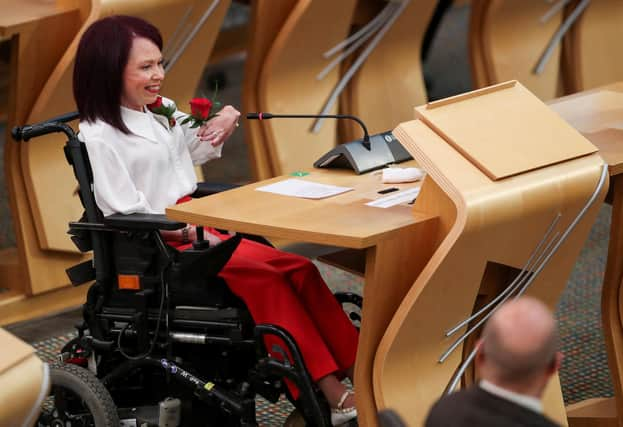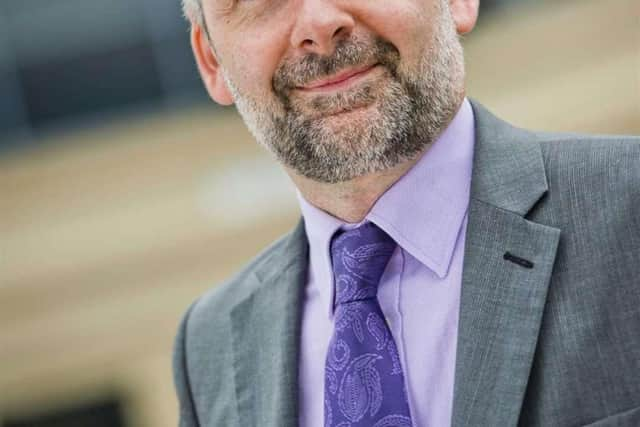We must break down the barriers to voting - Mark O’Donnell


A record number of people voted in these elections for Holyrood. It can only be good for our democratic process that there is a growing recognition amongst the electorate of the importance of our Scottish Parliament and the need to hold our elected representatives to account. As a disability charity, we also welcome the fact we have a more diverse and inclusive parliament. We were one of nine charities to sponsor a pan-disability hustings during the elections. Four of the five panellists spoke from their own personal experience of disability and sensory loss, and three of those candidates are now MSPs.
We hope this will lead to a parliament where this is a greater recognition of how much more we need to do to ensure we have a genuinely inclusive society for disabled people in Scotland. While it is great we can celebrate the success of disabled candidates being elected as MSPs, these elections also showed that inequality in our democratic processes still remains. It was shocking to learn that Pam Duncan-Glancy, now the first MSP who is a permanent wheelchair user, struggled to get access to the count for the results in Glasgow where she was a candidate. We were also disappointed to hear that, once more, too many blind and partially sighted people had problems casting their vote.
Advertisement
Hide AdAdvertisement
Hide AdAhead of the elections. we were pleased to work with the Electoral Commission in Scotland and other sight loss charities to provide information on voting for blind and partially sighted people. We also know that the Scottish Government is currently working on new methods of making it easier for visually impaired people to vote. However, the experience of this election shows that progress is urgently needed. Blind and partially voters told us they found staff at polling stations were not adequately trained to help them vote in private through using tactile voting devices, or did not even know where the tactile voting device was or how to use it. There were also problems using tactile voting devices for the ballot paper for this election, and some felt there didn’t appear to be procedures to support visually impaired voters in the context of Covid restrictions and social distancing.


We know that many blind and partially sighted voters chose to vote by post, particularly given the ongoing requirements of social distancing which is particularly challenging for people who are blind or have low vision. However, the reality is that they will almost inevitably have required assistance from someone in completing their postal vote, robbing them of the ability to vote independently and privately which should be their right.
We hope that this Scottish Parliament will reflect the increasing diversity of its membership by supporting the incorporation of the United Nations Convention on the Rights of Disabled Persons into Scots Law, and the ability to take part in the democratic process is a fundamental human right. With the problems blind and partially sighted people have faced voting, it is astonishing that we are now faced with the proposal for UK elections that there should be a requirement for voters to have Photo ID. This has the potential to make it even more difficult for visually impaired people to vote. If we want our democracy to be fully inclusive for all our people – as it must be – we need to break down the barriers for blind and partially sighted people to voting and ensure they can all exercise their democratic right.
Mark O'Donnell is Chief Executive of Sight Scotland
Comments
Want to join the conversation? Please or to comment on this article.